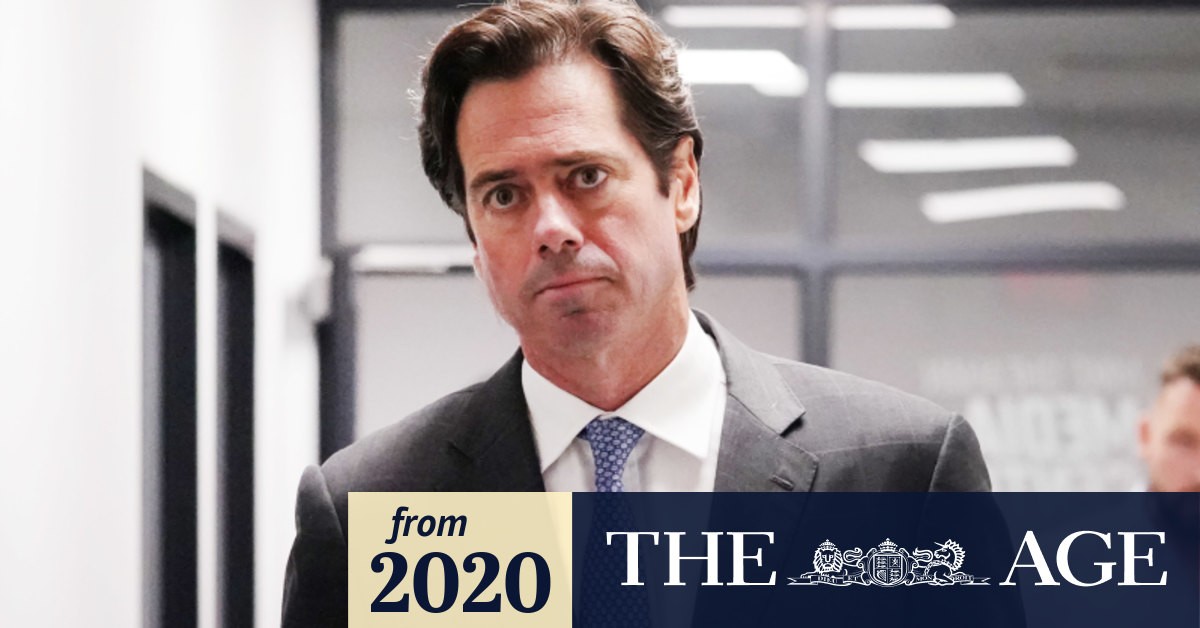Lol you do realise it was only switching off every second machine
Direct effect on clubs with venues including those that close sometime in the future !!
Follow along with the video below to see how to install our site as a web app on your home screen.
Note: This feature may not be available in some browsers.
Lol you do realise it was only switching off every second machine
Foxtel could easily go under as well in this climate
The Age M. Gleeson et al 20.3
Some good news for the AFL.
Gleeson said
"Marvel Stadium is not only a valuable asset but it promises future cash flows for parties willing to offer credit. The League is in a strong credit position to access debt (at very low interest rates- my words)...Clubs are also examining the equity in their own assets to be able to draw against ...".

Marvel Stadium key asset as AFL acts to survive financial calamity
With revenues falling off a cliff due to games being played in front of no crowds the AFL is working on an emergency response.www.theage.com.au
There have also been reports the AFL is seeking interest-free govt. loans.
Understand as pretty much everything can be questioned.
Foxtel have big savings in outgoings to sport.
Is Gleeson getting his info from AFL Media?
The MCC/Vic Govt combo favour the MCG.
The AFL have been actively transferring games from Marvel for a long time now. Its been done for a reason.
As a sideline, the more they rely on Docklands to provide income/loan coverage, the safer Vic clubs are.
After all, they're the ones who will need to play there to earn that income, and fewer clubs = fewer games.
With the MCC/Vic Govt combo pulling the strings? Does the way games are transferred already not suggest its not worth opening the facility?
Its an interesting situation ...
going by the news of late about the victorian government. the line of credit would be coming from the communist chinease partyIndeed. If the only lifeline for the AFL and all the clubs is a large line of credit from the Victorian government, then that government is going to insist that the credit be directed to save Victorian clubs rather than interstate clubs.
I don't think he even did that.I have to say this is a poor analysis.

Rating every AFL club's viability during shutdown crisis
Healthy, battling or on the breadline: Every AFL club's chances of surviving shutdownwww.foxsports.com.au
The author seems to have looked at the last P&L result and the number of members a club has, and ignored the main indicator of ability to survive this - net liquid assets.
I have to say this is a poor analysis.

Rating every AFL club's viability during shutdown crisis
Healthy, battling or on the breadline: Every AFL club's chances of surviving shutdownwww.foxsports.com.au
The author seems to have looked at the last P&L result and the number of members a club has, and ignored the main indicator of ability to survive this - net liquid assets.
Yes/no. It's important, but I wouldn't call it THE main indicator. Maybe 'one of' the main indicators. I do agree the article is woefully superficial though.
Assets that can be realised (including liquid assets, but also other things that can theoretically be sold or used as collateral...e.g. Pokies licences)
Revenue (cut back though it will be, there will still be some, and membership will be a big point here as they're more likely to accept the club taking their money anyway than, say, sponsors).
Expenses (again, after cut backs)
History of profitability (being profitable in previous years will improve likelihood of banks loaning you money if needed)
Members (if push comes to shove, having a quantity and quality of membership who can donate to keep the club alive could be a deciding factor).
If they've secured the cash to save the league and 18 clubs, then they should quit ******* around and cancel the season. They should be able to start again next year in March, full crowds, 22 rounds, etc. They could even use the same fixture as this seasons.
Why? They still need to pay this money back, never mind just about every stakeholder in the game wants to get playing when it's safe.
It won't be safe with crowds, and the game is nothing without the fans. That's why.
But they are losing tens of thousands of subscriptions daily something that will overtake the sports savings.Understand as pretty much everything can be questioned.
Foxtel have big savings in outgoings to sport.
The AFL should also go to 16 a side to save money.Keep the shorter quarters, go to 26 rounds (no byes). Rolling fixture over each two year period each team plays the other three times plus one extra derby/showdown. More $$$ into the game with 36 extra games plus a more equitable draw.
But they are losing tens of thousands of subscriptions daily something that will overtake the sports savings.
They will struggle to survive.
